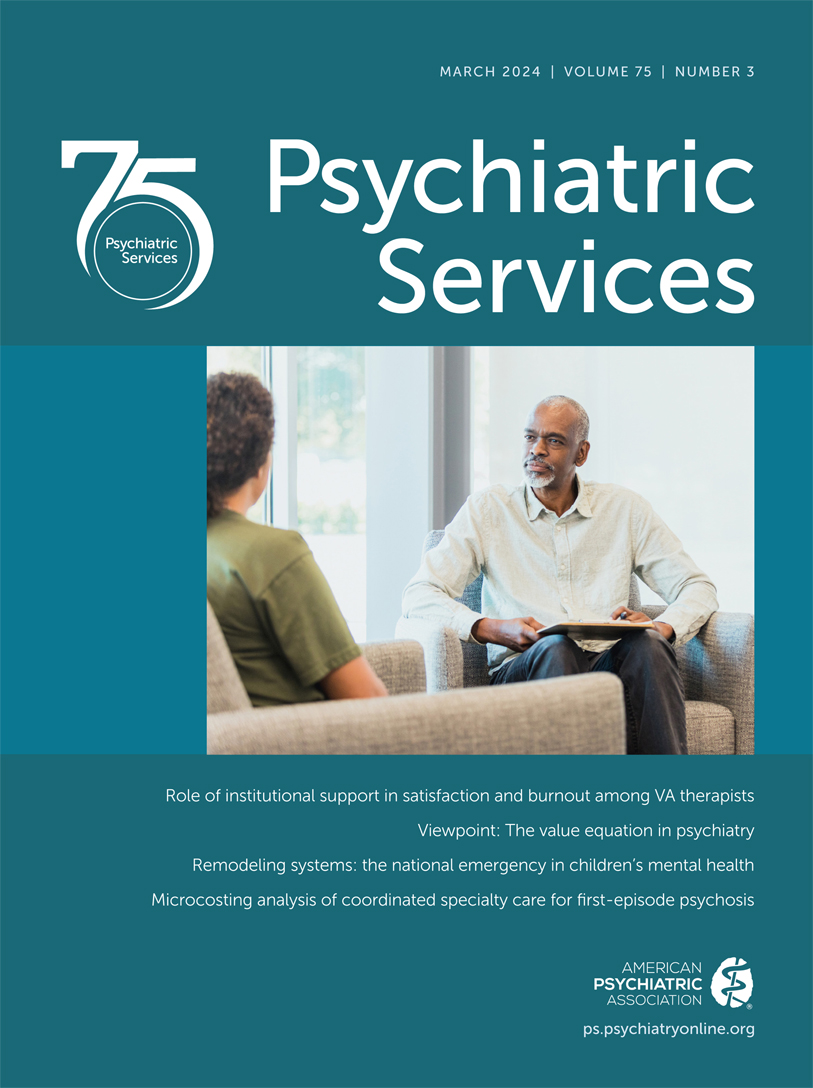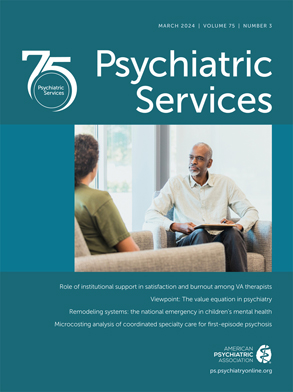Individuals involved in the criminal justice system require timely access to evidence-based mental health treatment and other services, including peer support, recovery housing, diversion services, assertive community treatment, and Medicaid continuity. County or state systems may not always offer this continuum of care to all citizens or those involved in the criminal justice system. In their article in this issue (
1), Johnson and colleagues sought to determine, by surveying county behavioral health and criminal legal representatives, which evidence-based practices are available in a sample of U.S. counties.
The survey provided some noteworthy results. The central finding is that certain crucial services, such as Medicaid continuity and supportive housing, are not available in many counties. A failure to meet basic needs for housing, food, and medical care will likely lead to poor health outcomes and an individual’s repeated involvement with the legal system regardless of the provision of evidence-based psychiatric treatment. This article draws attention to the critical need for a comprehensive, integrated system of mental health care for justice-involved individuals across the nation.
Certain methodological issues limit the utility of the study’s findings, however. The first is its overly broad definition of criminal legal–involved individuals, which includes 911 callers. Someone can call 911 for a host of reasons, many of which do not result in any direct contact with a law enforcement agent, so the importance of this population to the authors’ assessment of service availability is unclear. In addition, including this component in their definition broadens legally involved individuals to mean potentially anybody; the authors could have presented their findings as “the availability of recommended mental health practices in U.S. counties.”
Certain results of the study highlight the limitations of surveying county administrators who may not understand the topics under consideration. For example, the authors found that 39.7% of counties reported the availability of mood-stabilizing medications and 26.9% reported the availability of second-generation antipsychotic medications. These statistics suggest that most county mental health systems cannot access pharmacies with commonly prescribed psychotropic medications, which does not align with our experience and knowledge of the availability of such medications in community and correctional settings. The authors conclude that there is a “human rights issue” that “should be rectified,” whereas those surveyed probably lacked familiarity with psychotropic medication classes and simply responded “not sure” regarding their availability.
The list of recommended mental health practices could include the provision of court-ordered psychotropic medication in custody. Many patients arrive at county jails with severe psychiatric symptoms that can result in self-injurious behavior, suicide attempts, violence toward correctional staff or peers, or an inability to care for their basic needs. For these most profoundly impaired patients, the ability to urgently treat over objection can prevent emergency situations and restore their mental health and functioning. California’s Penal Code section 2603 went into effect in 2018 and enabled county jails to involuntarily medicate detainees found to be dangerous or gravely disabled and lacking the capacity to refuse treatment with psychotropic medication. Such legislation is potentially indispensable for patients and treatment providers in jails that have the correctional and medical staffing and physical property to ensure safe, involuntary administration of psychotropic medication.
Johnson and colleagues’ article brings attention to the complex needs of criminal justice system–involved individuals and the conceivable failure of government systems to meet those needs. The survey highlights potential deficits, however, rather than bona fide ones. Future research should focus on individuals at various points across the continuum of legal system involvement to clarify limitations in mental health service provision for those undergoing arrest, incarceration, and reentry to the community.

